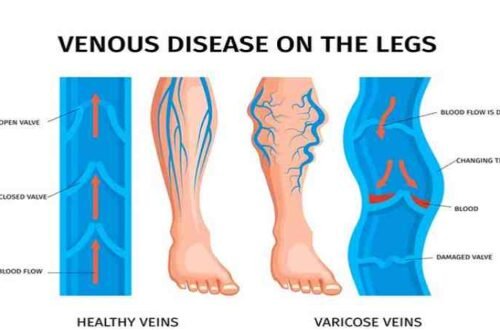When an unexpected arrest occurs, the process can be overwhelming for both the individual and their family. One of the most immediate concerns is how to secure their release from jail. As explained on the https://www.bailcobailbonds.com website, understanding how bail works, the role of bail services, and the training required to become a bail bondsman or security professional can ease the process and help navigate this complex system.
In this guide, we’ll explore the ins and outs of comprehensive bail services and the security training associated with it.
Bail is a financial agreement set by the court that allows an arrested individual to be released from custody, provided they return for their court hearings. The amount of bail is determined by the severity of the crime, the individual’s criminal history, and their perceived flight risk. Bail bondsmen play a vital role in helping those who cannot afford to pay their bail in full.
Types of Bail Bonds
. Understanding the differences between them can help you choose the right option for your loved one or client.
- Surety Bond: This is the most common type of bail bond and involves a bail bondsman paying the full bail amount on behalf of the defendant. The defendant or their family typically pays a percentage of the bail amount to the bondsman as a fee (usually around 10%).
- Cash Bond: If the defendant or their family can afford it, they can pay the full bail amount in cash to the court, which will be refunded after the court process is complete, provided the defendant appears for all required court dates.
- Property Bond: In some cases, a defendant or their family can use property as collateral to secure bail. The value of the property must typically be equal to or greater than the bail amount.
- Federal Bond: For federal crimes, securing bail may require a federal bond, which usually involves stricter conditions and higher amounts due to the severity of the charges.
- Immigration Bond: This bond is used in cases involving undocumented immigrants detained by immigration authorities. These bonds are often more complicated due to the specific regulations governing immigration cases.
- Did You Know? In the United States, the bail bond industry generates approximately $2 billion annually, with over 15,000 bail bond agents working across the country.
How Bail Bondsmen Operate: The Basics
Bail bondsmen (or bond agents) are licensed professionals who provide the funds necessary for someone to be released from jail while awaiting trial. They act as sureties, meaning they guarantee to the court that the defendant will return for their hearings. In exchange for this service, the bondsman charges a non-refundable fee, usually a percentage of the total bail amount.
The Responsibilities of a Bail Bondsman
Being a bail bondsman is a role that carries significant responsibility. Not only must they ensure that the defendant shows up for their court dates, but they must also be ready to track down the individual if they fail to appear, known as “skipping bail.” This process may involve collaboration with law enforcement or hiring a bounty hunter to locate the defendant.
- Fun Fact: Bounty hunting is legal in most U.S. states and is used to track down individuals who skip bail. Bounty hunters usually have more lenient laws on apprehending fugitives than law enforcement officers, which can include crossing state lines or entering properties.
Becoming a Bail Bondsman: Required Training and Licensing
If you’re interested in becoming a bail bondsman, you’ll need specific training and a license to operate legally. Bail bondsmen must meet strict requirements set by their state, which often include background checks, bonding exams, and formal education in criminal law and risk assessment, as outlined on https://bailbeaandsecuritytraining.com, to ensure they are well-prepared to assist clients effectively.
Security Training and Legal Knowledge
A career as a bail bondsman requires not only financial acumen but also a solid understanding of criminal justice and security measures. Many bondsmen complete security training programs that teach them how to manage risks, conduct investigations, and ensure the safety of both the public and their clients.
- Training programs: These typically cover legal procedures, defendant behavior assessments, and the use of force, if necessary.
- Licensing: Most states require that prospective bail bondsmen complete a state-approved pre-licensing course and pass an exam. The exam typically covers bail law, contract law, and general ethics.
Skills Every Bail Bondsman Needs
- Strong Communication Skills: Bondsmen work closely with clients, law enforcement, and court officials
- Negotiation Skills: Bail agents must often negotiate with courts, lawyers, and sometimes fugitives to ensure the defendant’s compliance.
- Attention to Detail: One missed detail can result in significant legal and financial consequences, so bondsmen must remain organized and vigilant at all times.
Security Training and the Role of Security Services
Security training is not only critical for bail bondsmen but also for security professionals who work in the fields of bail enforcement, personal protection, and court security. Many security officers undergo rigorous training programs to understand how to de-escalate situations, use non-lethal force, and manage potentially dangerous individuals.
Types of Security Services Involved in Bail
Bail services often work hand-in-hand with security teams to ensure smooth operations and minimize risks. Security personnel can assist in a range of services, such as:
- Court Security: Managing safety at court appearances where emotions may run high.
- Transportation: Safely transporting defendants from one location to another.
- Surveillance: Tracking down individuals who fail to appear in court through discreet monitoring or active pursuit.
- Protection Services: Security teams may also protect bail bondsmen who might be threatened by clients or their associates.
The Future of Bail Services and Security Training
The bail bond industry is evolving, with new laws and reforms being introduced to change how bail is handled, particularly for non-violent offenders. Additionally, security training is advancing, with more focus on technology, ethics, and non-lethal tactics. Bail bondsmen and security professionals who stay updated with the latest legal changes and security techniques will be better equipped to serve their clients and ensure public safety.
Technological Advancements in the Bail Industry
Technology is playing an increasing role in bail services, with tools such as electronic monitoring, GPS tracking, and secure communication methods helping bondsmen and security officers keep better tabs on defendants and provide more accurate updates to the courts.
- Did You Know? GPS tracking devices are commonly used in bail enforcement to monitor high-risk defendants and ensure they comply with bail conditions.
Navigating the bail bond process can be challenging, but with the help of comprehensive bail services and trained security professionals, the process becomes much more manageable. Whether you’re seeking bail assistance for yourself or a loved one, or considering a career in the bail bond industry, understanding the role of bail services and the necessary training behind it is crucial. From handling court procedures to ensuring the safety of all involved, bail bondsmen and security professionals play an integral part in the legal system and in maintaining peace and order.





